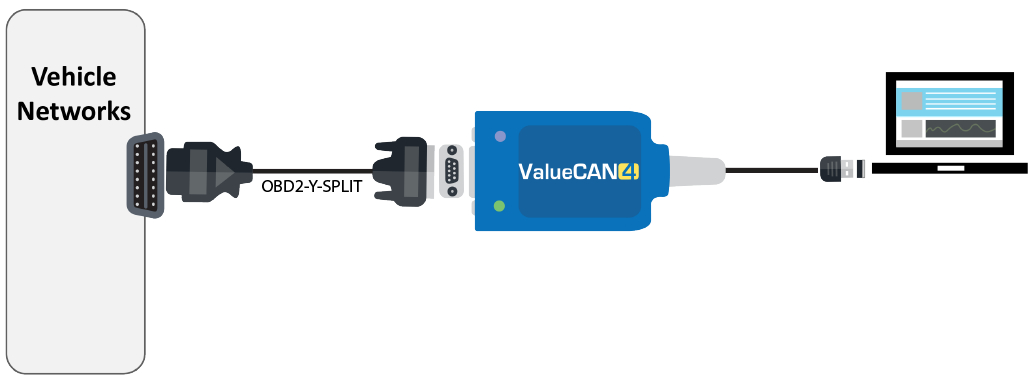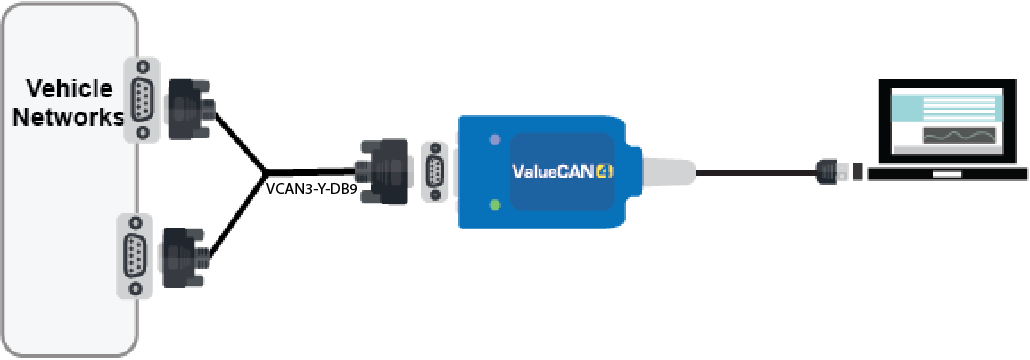4. Hardware Setup
4.1. Connection Diagrams
Hookup diagrams show at a glance on how to physically connect your ValueCAN 4-2 to vehicle networks and your PC.
4.1.1. Deutsch 9-Pin Hardware Connection Diagram

Figure 7: Connector Diagram with ValueCAN Deutsch 9-Pin (J1939-RP1210) Cable (DB-9F to Deutsch 9-Pin) Part # J1939-CABLE
4.2. Vehicle Network and Power Connections
The integrated DB9 connector is used to connect to the vehicle/bench CAN network(s). CAN termination is integrated into the ValueCAN 4-2 and can be enabled from the neoVI Explorer software interface.
Caution
Caution: The ValueCAN 4-2 can only be powered via the USB cable.
Caution
Caution: CoreMini scripts run when the device is powered and not connected to a PC’s USB port (that is, enumerated). Therefore to run a script stand alone, it is recommended to use a power-only USB cable to prevent enumeration. Using a charger or power pack to power the ValueCAN 4-2 will also work
4.3. PC Connection
Connect the USB Type A/Type C to USB port on the PC. It is possible to use a powered USB hub to connect the ValueCAN 4-2, but performance varies due to the quality of the hub and its ability to provide power. Make sure to use a high-power USB hub and test the hub with the ValueCAN 4-2 before use.

